Hey, soon to be language learners! Today I am going to help you all with two famous language learning portals namely - Pimsleur and Rosetta Stone. Well, to start with both of these platforms offer language courses in various languages making the whole process easier for us as everything is available online and almost all of the courses can be completed independently. I am sure that by the end of this blog you will get a clear idea about; what makes your language learning experience interesting. So let's get started with the Pimsleur Vs Rosetta Stone Comparison.
Pimsleur is an American company offering language courses online. The teaching approach of the courses is based on the Pimsleur method, i.e.: All the courses are offered in audio format (so basically listening and repeating what they say)
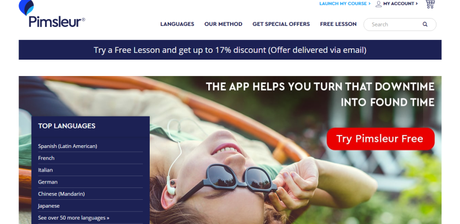
Rosetta Stone is also a platform offering language courses online. The courses are offered in audio-visual format (that means pictures, listening tracks, and some writing exercises) and are based on the concept of dynamic immersion. This software also offers other programs like brain-fitness but it is mainly famous for language programs.
Since today we are going to compare these two platforms we must understand both the concepts on which the courses are based. Both methods have a very different approach to teaching a language.
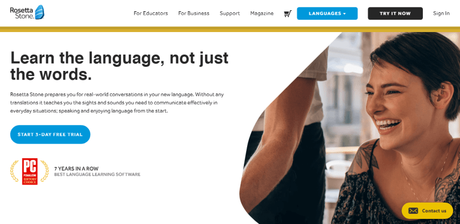
Learning capacity and the format in Pimsleur depends from person to person. What works for me might not work for my friend and vice versa. So you must recognize your strengths before signing up for some course. Like I am more of an audio-verbal learner, I need to speak things out loud for them to get fixed in my mind. But some people need to write things.
The main difference is one is an audio-verbal platform and the other is a visual platform.
In Pimsleur, you listen to the given words and phrases and repeat them. You need not necessarily look at the screen while doing a course. What matters is how attentive you are towards what you listen to and how well can you pick it up.
So some words and phrases can be used in various contexts, for example, the verb "buy" can be used to buy a shoe or a hat or even a house so they focus mainly on these words and phrases. Once we have a good number of these phrases we can easily build sentences and it also leads to effective communication.
In Rosetta Stone courses, you get a series of pictures and you learn them with words or sentences spoken by a native speaker. The success of the courses depends on your ability to associate pictures with the words/ sentences. At first, it might seem a little difficult but after some time it gets relatively easier as well as enjoyable. So this is a good course if you want to complete your lessons in Subways or any other public transport as you mustn't read it aloud.
This method advocates the power of auditory and verbal perception. This method can be easily observed in a child learning to speak. He/she listens to new words and starts repeating them and uses these words as much as possible in various scenarios. That's why it is said that you must speak cautiously around a child. This whole process is very natural to us because we have done it in our childhood.
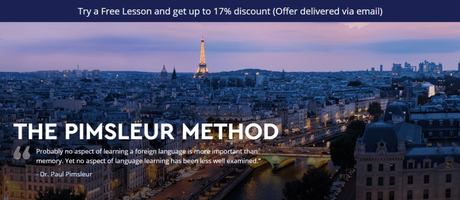
Rosetta Methodology
This method has a different approach, from what I have read and understood this is what any person would experience if he is thrown in a country with a different language. He would listen to people speak, see, and observe the scenarios in which particular words are used; he will link his audio memory with his visual memory to develop his vocabulary and learn the language. One usually doesn't have a reference for his mother tongue in such situations, as there are high chances that people there might not know it.
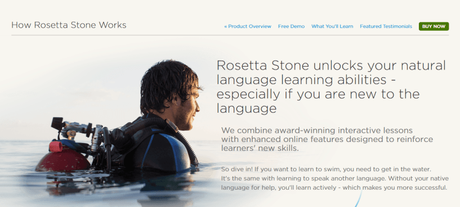
The number of lessons per level in Pimsleur depends upon the language, most of the languages have 30 half an hour lessons per level, some of the less popular languages may have only 10 half an hour lessons per level. For example, popular languages like German or French or Mandarin have a higher number of lessons as compared to languages like Icelandic, Norwegian, Arabic (Egyptian).
And the number of hours needed to complete a level is completely dependent on what language you have chosen.
All the lessons are in audio format but you must repeat after that. The whole learning process completes when you repeat what you have heard. So you should not plan on completing the lessons in public places unless and until you are comfortable with repeating it out loud. But this audio - verbal format keeps the student engaged in the lesson as one must be prompt at it while repeating. So it pushes you to pay complete attention to the lesson.
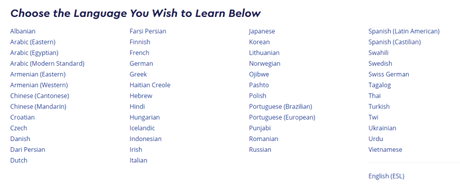
So the duration of a lesson is not fixed like Pimsleur. In Rosetta Stone a single lesson ranges from 5-30 minutes depending on the activity taken in that particular lesson. There is no such fixed number of lessons per level, it varies from language to language and also levels to level depending on the format of lessons opted by the website. I found this to be an interesting feature because the changing time of a lesson might work against monotony brought by a fixed amount of time per lesson.
One major advantage that I have come across is that they also offer paid live tutored classes. Where you have a fixed time slot with the teacher and in that time slot the tutor teaches a small group of students at the same time so it's more or less like a usual language class just in a virtual format. This is an added benefit as your queries are clarified directly by an experienced teacher. This feature also allows you to apply all the knowledge that you have acquired so far. But the time slots that you get might not be according to your convenience there might be a major issue of time difference if the tutor and the students come from different countries. This is the only downside I see about this feature. But if you are a dedicated student, I don't think this should be an issue
In Rosetta Stone lessons are given in audiovisual format so that means, a picture will appear on your screen and you will have to connect it with words or phrases. So you need to be glued to your screens for the duration of the lesson. Some may also require you to do small writing tasks. This platform is particularly advantageous to people having a strong visual memory.
Lessons are divided into writing and reading sections and you can design your lesson focusing on one ability. So this feature comes handy when on certain days you are not in the mood for a particular thing.
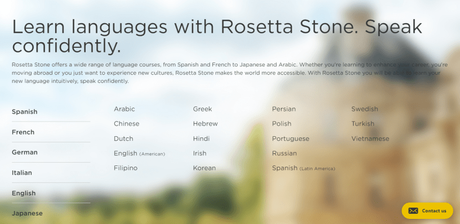
So in terms of lessons, Pimsleur has a fixed duration per lesson but when it comes to levels they have not standardized the number of levels. So a certain language may have 16 levels and the other only five. The French language has 16 levels and...... This can turn out to be an issue if the language that I have chosen has only five levels, as it might not take me to my fluency target. This whole thing again depends on the popularity of the language. If the language that you have chosen is not much popular you might end up having a very less number of levels.
The number of languages offered on Rosetta Stone might be less compared to Pimsleur but there is a standardization of the number of levels. So, all the languages have a minimum number of 3 levels per language course or a maximum number of 5 levels. Even if the language is rarely used or spoken it is bound to have 3 levels at least. As every coin has a flip side, this feature can be a problem as well. For example, if I have acquired a certain level of proficiency in a said language at the end of the fifth level and wish for more I will not have any option but this can happen at either of the platforms.
English is usually used as a mediatory language while teaching. If one doesn't understand a word or a phrase in the target language, English or even the mother tongue can be used to explain it. This is a very common practice. So in Pimsleur you listen to a word or phrase in your target language and English or your mother tongue and repeat it. But this can hinder your improvement in the long term as you will get used to having translation all the time. My English teacher always used to tell me "think in English, don't translate it to English from Marathi (my mother tongue)" So your proficiency in a language can also be assessed by your ability to think in that language.
One feature that won me over is that Rosetta Stone don't use a mediatory language. All the courses are offered directly in your target language, although this might seem a little difficult at first, later on, you get a hang of it, and then learning becomes much easier. It also boosts your ability to retain the vocabulary. So the reason that I am so sure about it, is that most of the worldwide recognized language institutes like Goethe Institut( German), Alliance Francaise ( French) insist upon teaching in the target language right from the basic level. They usually pantomime the concepts or point out to some objects to explain the words and phrases.
Language cannot be learned separately, it goes hand in hand with culture. Cultural knowledge enhances your proficiency in a language. Some concepts, some words or phrases are culture-specific; if you do not know the culture there are high chances that you might not be able to understand them. For example, some cultures are honorific cultures meaning respect is given to elders or strangers while speaking or writing and the verb conjugation depends on this honorific pronoun so if you cannot understand this concept, you won't be able to apply it and you might end up appearing rude to some of the people. Although people are quite understanding some extra knowledge never hurts.
Pimsleur does a good job of giving cultural references. There is always some extra information given about the culture and one can always refer to it. This can always be an added benefit for language learners whose main aim for learning a language is traveling in the country.
While traveling one needs basic knowledge of phrases that can be used. And this extra information about the culture adds up to your basic knowledge and it is easier to mix in the community with the help of this.
Believe me, knowing at least something about the culture helps you. Two years back I was in Germany, I am quite proficient in the language but without any cultural background, I would not have been able to sustain for long. My roommates were Germans and they would always compliment me for understanding and respecting their cultural boundaries.
This is one area where Rosetta Stone lacks seriously. Culture is almost completely ignored here. Cultural references are close to absent. Even the pictures used are almost the same for all the languages.
For a person like me who wishes to learn the language as a whole, this can be a big red flag. But that doesn't mean that everybody has the same opinion, some might not be interested in learning about it and even say if I want to, I will google it.
Learning something new can be a big responsibility not just because of the time that you must invest in it but also because of the money that goes into it. The influence of price always reflects in your decisions. We always want to be sure whether whatever we have bought is worth the price or not. So we must understand the pricing thoroughly.
The subscriptions of Pimsleur are divided into two categories-
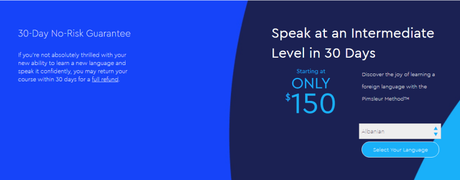
Rosetta Stone might seem a little expensive but one mustn't forget that they also have an additional offer of live tutored sessions. So the per month subscription fee depends on that as well and the minimum subscription is of 3 months but you will mostly need more time to acquire some proficiency in the language. And if you subscribe for longer durations it saves a lot of money.
- Basic- $14/ Month with access to all the languages and some additional features like driving mode.
- Premium-$19.95/ Month with access to all the languages and a variety of additional features like Flashcards, speed round, Quick match, etc.
All the courses are available offline as well. And one can also download their Apps.
Pimsleur Vs Rosetta Stone- Similarities
Both the platforms offer a plethora of languages, Pimsleur has a wider base as it offers languages almost from all over the world. Rosetta Stone, on the other hand, offers a lesser number of languages but they are still enough. One will find his/her target language on either of the Language learning platforms.
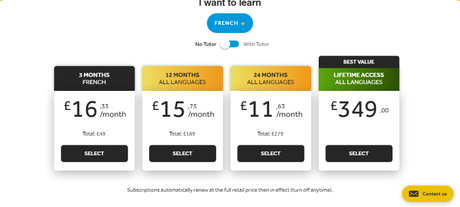
So according to me, it is quite difficult to reach an advanced level of fluency through online untutored courses. So both the courses start with the basics and take you to an intermediate(ish) level. That means you can understand a certain level of complex ideas and vocabulary of almost B1 level about CERF ( Common European Framework of Reference for Languages).
- Additional services- Pimsleur does not offer a variety of other services like games and all. Some games are available but only to premium members. All the courses are available offline as well. And one can also download their Apps.
- Customer support- You can contact them 24/7 via Phone and you can also fill out the form available on "Contact us" to get in touch with them through email. But they may or may not revert to you immediately.
- Additional services- Rosetta Stone wins this match hands down because there are a lot of activities available to all of its subscribers and one can also play live matches with fellow language learners. Most of the games are guessing games or Bingo style games.
- Customer support- live chat facility is offered 24/7 and you can also contact them via emails.
The courses are extremely well structured that it encourages us to go ahead with the language and they also assess our improvement through games and small quizzes.
Earlier I believed that grammar should be taught separately as a different topic but then if we don't know the application of that grammar in day to day scenarios what is the use of that. Grammar is important but when it is paired with the application it is much more beneficial. Both the courses do a pretty good job at it. It is taught with the help of phrases, pictures from the day to day scenarios which help in combining grammar and its application in daily life.
- A large number of languages are offered-
This is a very common problem with online language courses, with the advancement in the course the levels change and so does your understanding of the language but the course structure remains same throughout like in Pimsleur you listen to a word/phrase/ sentence and repeat it this process remains as it as even if you are at the first level or the last. This can lead to repetitiveness in some time.
Customer Reviews
- It can lead to a certain amount of repetitiveness over some time.
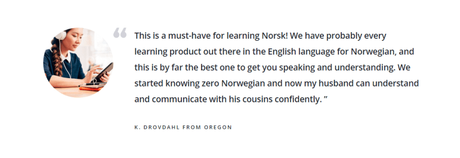
Rosetta Stones Reviews & Testimonials
Quick Links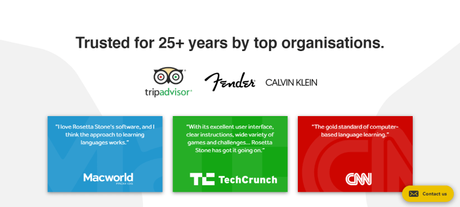
FAQs
Conclusion: Pimsleur Vs Rosetta Stone 2020 | Our Recommendations
So after a thorough review, I hope you all have got the information you wanted. So, providing you all a summary of the whole review.
Pimsleur offers a larger number of languages taught in auditory format and they also offer you a facility of knowing the culture of your target language but they seriously lack in the area of providing additional services like games.
Rosetta Stone offers a lesser number of languages compared to Pimsleur but with audiovisual teaching and they do ignore culture almost completely but compensate that with well-equipped games that keep the students engaged in the course and help in boosting their confidence.
In the end, I would like to say that, opt for a Language learning platform that you find interesting and useful. And a platform that suits your learning abilities and interests.

